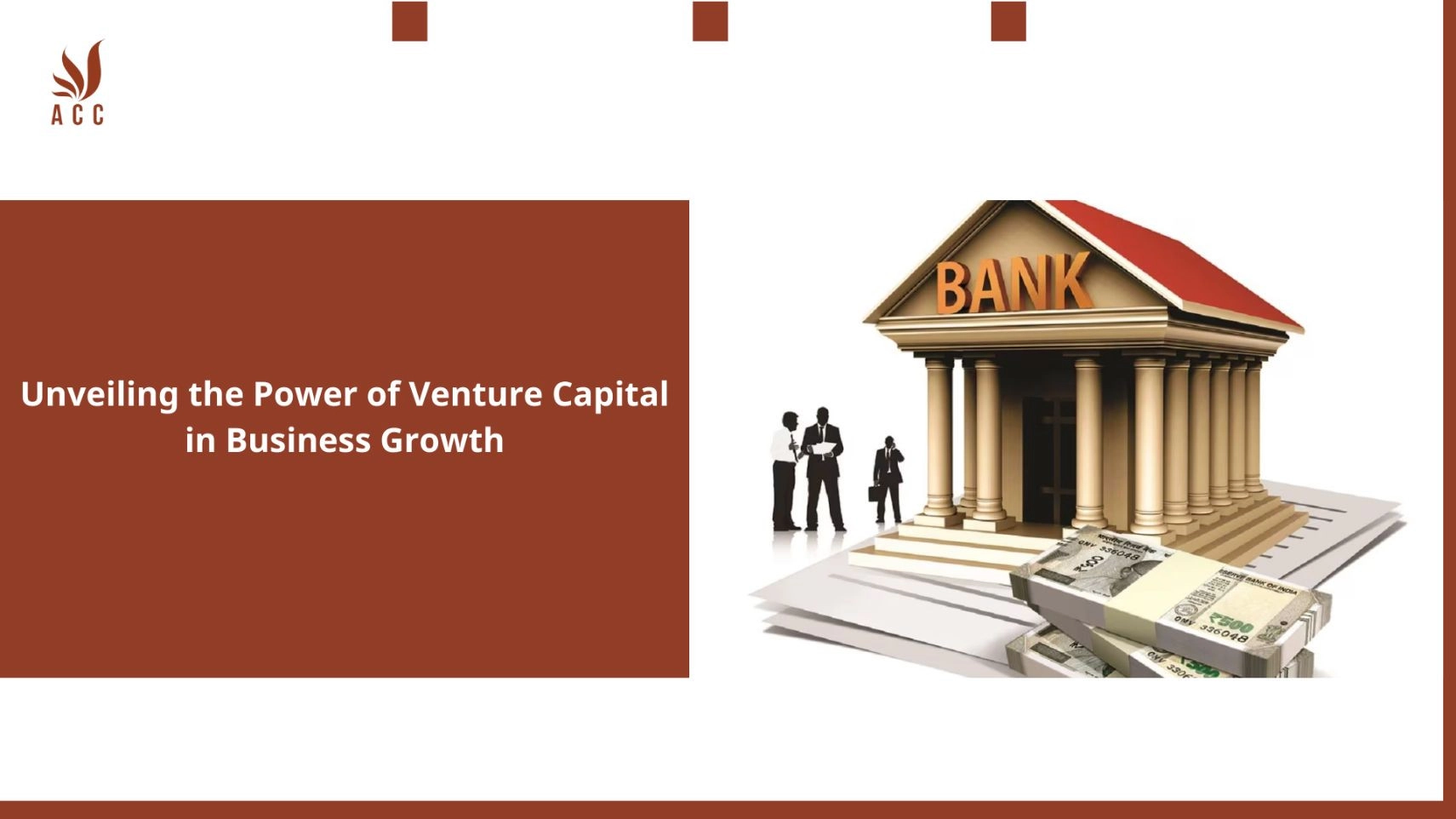
1. Unveiling the Power of Venture Capital in Business Growth
Venture capital, often referred to as VC, is a critical component of private equity financing. It serves as a lifeline for startup companies and small businesses with the potential for long-term growth. VC is not just about injecting funds; it also encompasses the provision of technical and managerial expertise. In this article, we'll delve into the realm of venture capital, exploring its nuances, history, advantages, and its role in driving innovation.
2. Unlocking the Potential of Venture Capital
Venture capital serves as a financial boost for startups and small businesses poised for significant growth. It typically arrives in the form of private equity or as valuable expertise in technology or management. VC transactions often entail the creation of substantial ownership stakes in a company, which are then sold to a select group of investors through independent limited partnerships. Unlike other private equity deals, VC primarily targets emerging companies seeking substantial funding for the first time.
The potential for above-average returns is the allure for venture capitalists, despite the inherent risks. VC plays a pivotal role in the financing landscape, especially for companies with limited operating history and insufficient access to traditional financing avenues like capital markets and bank loans.
3. The Dynamics of VC Investment
One downside of VC investment is that investors usually gain a say in company decisions and a significant share of the company's equity. While this offers the capital needed for business growth, it can lead to a loss of creative control for the company's founders. Many venture capitalists prioritize quick, high-return investments, which may exert pressure on the company to seek a rapid exit.
4. A Historical Perspective
Venture capital, a subset of private equity, gained prominence after World War II. Harvard Business School professor Georges Doriot is often credited as the "Father of Venture Capital." He initiated the American Research and Development Corporation in 1946, raising substantial funds for technology commercialization. The first investment in a company exploring x-ray technology for cancer treatment proved highly successful, solidifying VC's importance.
5. Shaping the VC Landscape
The 2007-2008 financial crisis left a mark on the VC industry as institutional investors tightened their purse strings. However, the emergence of unicorns, private startups valued at over $1 billion, reinvigorated the sector. A diverse pool of investors, including sovereign wealth funds and major private equity firms, began seeking opportunities in this low-interest-rate environment, reshaping the venture capital landscape.
6. Westward Expansion and VC
Venture capital, once concentrated in the Northeast, gravitated toward the West Coast with the rise of the tech ecosystem. Companies like Fairchild Semiconductor, supported by venture capital, played a pivotal role in this shift. Influential figures like Arthur Rock further cemented Silicon Valley as a hub for VC investment. Even today, the West Coast continues to dominate the VC scene, attracting a significant share of both deals and value.
7. The Role of Regulations
Regulatory changes have played a crucial role in popularizing venture capital. Amendments in the Small Business Investment Act (SBIC) in 1958 provided tax incentives for investors. Subsequent revisions reduced capital gains taxes, while changes in the Employee Retirement Income Security Act (ERISA) allowed pension funds to invest in small businesses. These changes catalyzed VC growth in the 1980s, with funding levels reaching new heights.
8. Pros and Cons of Venture Capital
VC serves as a lifeline for new businesses lacking access to stock markets or sufficient cash flow for debt financing. It offers capital, mentoring, and networking opportunities, contributing to a company's growth. However, it comes at a cost, with investors demanding a substantial share of equity and often pushing for rapid returns, potentially compromising the company's creative control and long-term growth prospects.
9. Different Stages of VC Investment
VC investment is divided based on the growth stage of the recipient company:
- Pre-Seed: This early stage focuses on turning ideas into a viable business plan.
- Seed Funding: Startups seek funding to launch their first product.
- Early-Stage Funding: Companies develop products and require additional capital for production and sales, often in rounds denoted as Series A, Series B, and so on.
10. Venture Capital vs. Angel Investors
Venture capital is typically provided by high-net-worth individuals and venture capital firms. Angel investors, on the other hand, are often entrepreneurs or retired business executives. They usually invest in companies they are familiar with or have academic training in. Angel investors often precede VC funding rounds.
11. The Venture Capital Process
Companies seeking VC support submit business plans, undergo due diligence, and secure investments in exchange for equity. VC professionals play an active role in the funded company, advising and monitoring progress. Investors exit the company through mergers, acquisitions, or initial public offerings after a few years.
12. A Day in the Life of a Venture Capitalist
VC professionals begin their days by digesting financial news from respected publications. Meetings fill the rest of their schedules, including discussions about potential portfolio investments and ongoing evaluations of portfolio companies. Networking meetings with budding entrepreneurs seeking funding round out the day.
13. Venture Capital Trends
The VC industry has experienced both highs and lows, with 2022 marked by sweeping momentum and substantial funds raised. While the industry initially thrived due to low-interest rates, shifts occurred as rates rose, leading to changes in the investment landscape.
14. The Significance of Venture Capital
VC plays a pivotal role in fostering innovation and entrepreneurship. It allows startups to access external capital and, in return, offers investors a stake in promising companies. While VC can lead to the loss of creative control, it provides the fuel necessary for businesses to fulfill their vision.
15. VC Ownership and Differentiation
VC typically acquires a substantial ownership stake in a new company, ranging from 25% to 50%. Venture capital is a subset of private equity, which encompasses various forms of financing.
In conclusion, venture capital is more than just an injection of funds; it's a catalyst for innovation and growth in the business world. While it comes with challenges, its role in shaping the entrepreneurial landscape cannot be overstated. Whether it's through private equity or expert guidance, venture capital is a force to be reckoned with in the realm of business growth.
16. Why should professionals use ACC Law Firm's capital Service?
-
Expertise in Legal Matters: ACC Law Firm specializes in legal services, providing professionals with access to experienced attorneys who can offer valuable legal guidance. Whether it's contract negotiations, intellectual property issues, employment matters, or any other legal concern, their expertise can be invaluable.
-
Tailored Legal Solutions: ACC Law Firm understands that every professional's needs are unique. They can customize their legal services to address the specific challenges and opportunities faced by professionals in different fields.
-
Risk Mitigation: Legal issues can pose significant risks to professionals and their businesses. ACC Law Firm can help identify and mitigate these risks, reducing the potential for costly legal disputes or compliance issues.
-
Resource Optimization: Professionals can save time and resources by outsourcing their legal needs to ACC Law Firm. This allows them to focus on their core competencies and business objectives, while leaving legal matters in the hands of professionals.
-
Access to a Network: ACC Law Firm may have a network of legal experts and professionals in various fields, which can be beneficial for clients seeking connections and advice beyond just legal services.
Q&A
Question 1: What is capital in the context of economics and finance?
Answer 1: Capital in economics and finance refers to the financial assets and resources that individuals, businesses, or governments use to invest, produce goods and services, and generate income. It can include money, physical assets like machinery, and financial instruments like stocks and bonds.
Question 2: How is capital different from income or revenue?
Answer 2: Capital represents the assets and wealth a person or entity possesses, which can be used to generate income. Income, on the other hand, is the money earned from various sources like wages, sales, or investments. Revenue typically refers to the total earnings a business generates from its primary operations.
Question 3: What are the main types of capital in business, and how do they function?
Answer 3: The main types of capital in business are:
- Debt Capital: Funds raised through borrowing, such as loans or bonds, with the obligation to repay the principal amount and interest.
- Equity Capital: Funds raised by issuing shares or ownership stakes in a company to investors in exchange for ownership rights.
- Working Capital: Capital used for day-to-day operations, including cash, inventory, and accounts receivable.
- Fixed Capital: Capital invested in long-term assets like machinery, buildings, and equipment.
Question 4: How can a business effectively manage its capital to ensure financial stability and growth?
Answer 4: To effectively manage capital, a business should:
- Conduct financial analysis to determine capital needs.
- Balance debt and equity financing to optimize the capital structure.
- Efficiently manage working capital to ensure liquidity.
- Invest in projects that offer a favorable return on capital.
- Continually monitor and adapt capital management strategies based on changing business conditions and financial goals.
Nội dung bài viết:






Bình luận